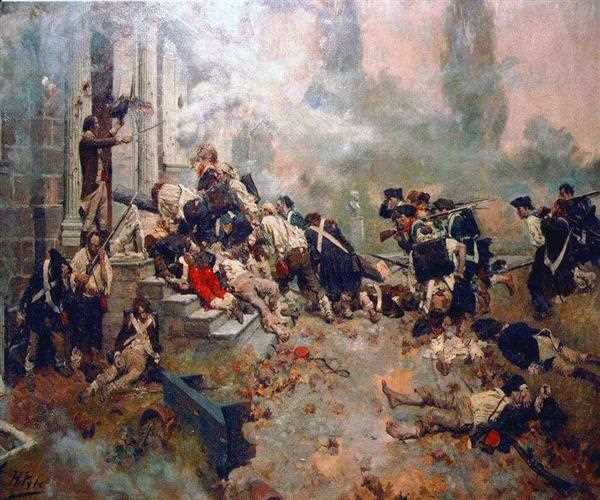In the wake of catching Philadelphia in September 1777, British General William Howe (1729-1814) stayed outdoors a huge unexpected of his troops at close-by Germantown. Washington propelled an unexpected assault on the inadequately guarded British camp, however his armed force neglected to pull off his intricate fight design.

The British headed out the Americans, perpetrating twice the same number of setbacks as they endured. The thrashing at Germantown, which came not long after a comparative misfortune at Brandywine, drove some noticeable Americans to scrutinize Washington's administration. In any case, in spite of the misfortunes, a significant number of his troopers had performed well, and Germantown showed that Washington's once-incompetent armed force was headed to turning into the all-around prepared power that would win the war.
The Philadelphia Campaign
Frontier protection from the British Empire's endeavor to fix its control over its North American provinces brought about the American Revolution, which broke out in 1775 following quite a while of contention. In the primary long periods of the war, the greater part of the battling occurred in the North. Despite the fact that determined from Boston in the spring of 1776, British powers had caught New York City later that same year and propelled attacks from Canada in both 1776 and 1777.
Additionally, in 1777, General William Howe, the officer of British powers at New York, drove a campaign to catch Philadelphia, the true capital of the United States and the home of its national government, the Continental Congress. Howe's undertaking withdrawn from New York in July 1777. It took a roaming seaside course toward Philadelphia, keeping away from the American-controlled Delaware River and rather cruising up the Chesapeake Bay to the tip of the Elk River in Maryland.
From that point, Howe and his fighters expected to walk to Philadelphia. General George Washington, president of the Continental Army, endeavored to square Howe from taking the city. Washington arranged his armed force amongst Howe and Philadelphia along the shore of the Brandywine Creek.
The Battle of Germantown Begins
Four streets prompted Germantown. Washington chose to send a different power along each course, hitting the British from four sides on the double. In the same way as other of the plans Washington attracted up the early long periods of the war, his arrangement for Germantown was more qualified for a hypothetical exercise than for a real eighteenth-century armed force made to a limited extent out of crude troops and ineffectively prepared minutemen.
Organizing separate strikes from far-evacuated positions was constantly precarious; an endeavor to arrange four separate ambushes was likely destined to come up short. Washington's armed force partitioned into four sections the evening of October 3 and walked toward the four separate arranging indicates from which they dispatched their concurrent assaults at sunrise on October 4.
Outcome of Germantown
The Battle of Germantown was Washington's second thrashing in under multi-month. As at Brandywine, his armed force endured twice the same number of setbacks as it inflicted– roughly 1,000 Continentals (counting those harmed, murdered and missing) to 500 Redcoats– bringing up issues about Washington's wellness for order. A vocal minority in Congress and in the military started to whisper that Washington ought to be diminished of the general charge of the Continental Army and Gates selected in his place.